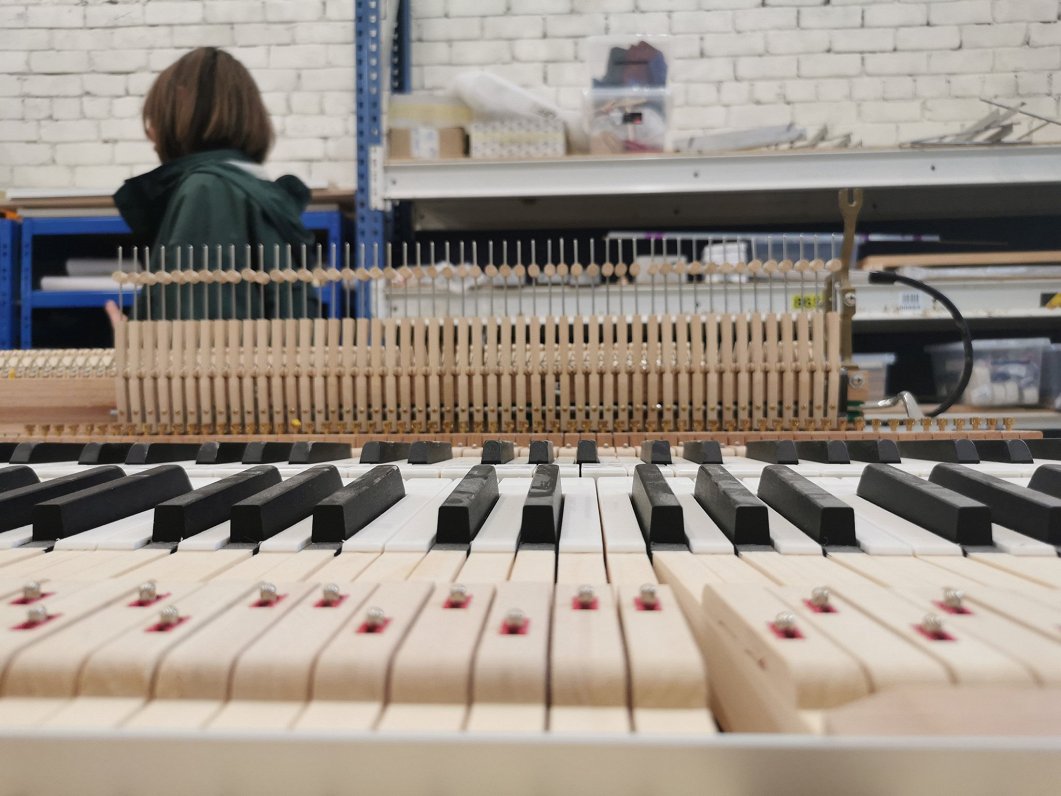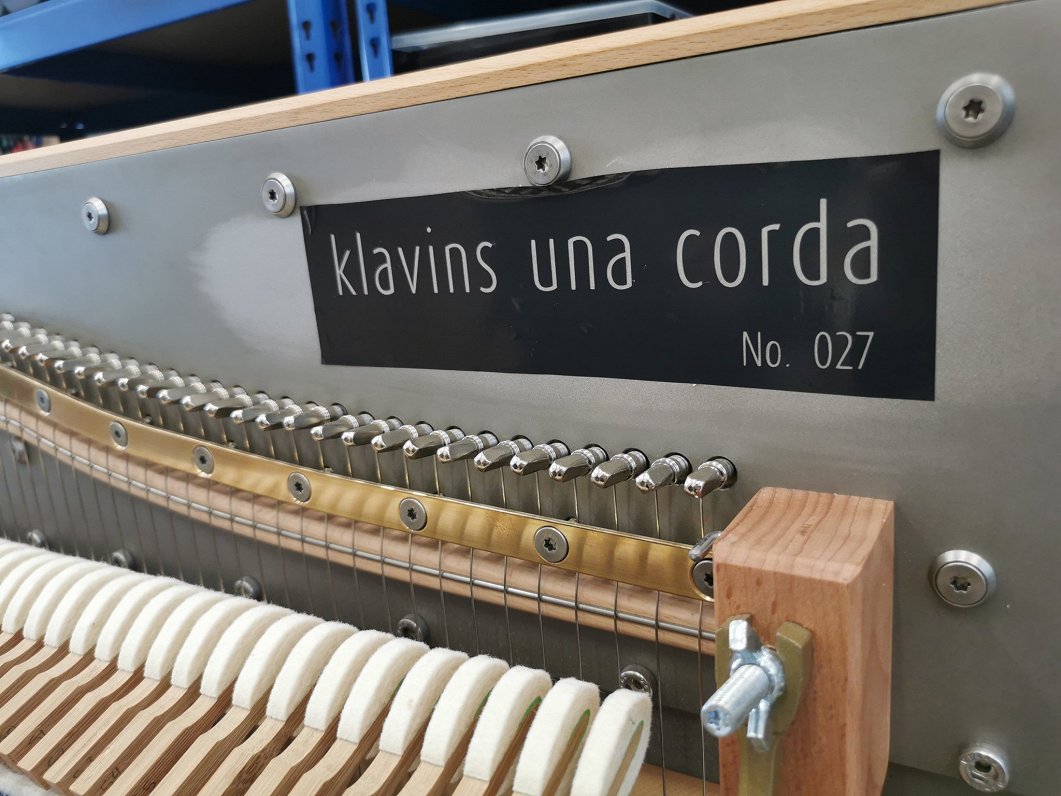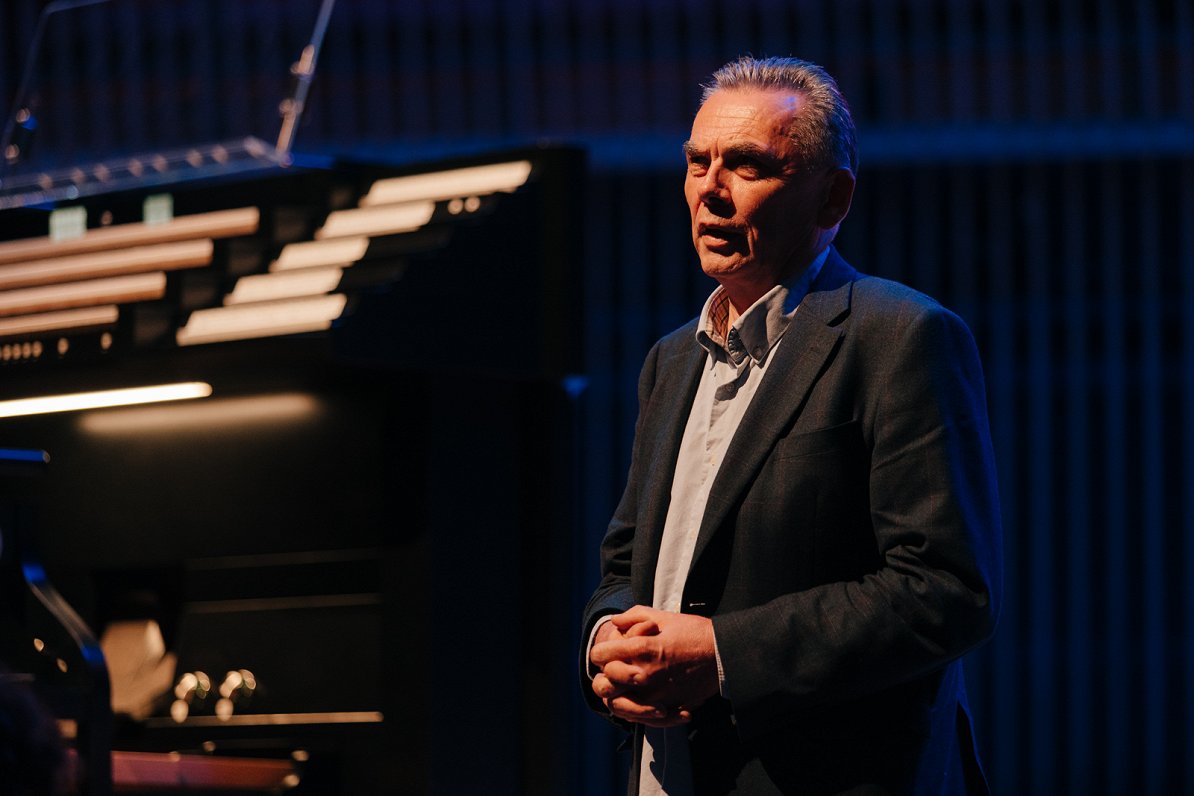Kuldīga is a small Kurzeme town that has moved many a heart. With delightful Baroque architecture, streams bubbling beside cobblestone streets and Europe’s widest waterfall, “the Venice of the north” is a magnet for tourists and a candidate for UNESCO World Heritage status.
This year, a man who has turned musical convention upside down has made this inspiring backwater 125 km west of Riga his home. Dāvids Kļaviņš has reinvented the way pianos look and sound, and he’s on a mission to improve our lives in these worrying times.
“Music is a very positive way to calm the nerves and reduce anxiety and aggression,” he says. “And the most effective way to make a change in the world is to spread that positive energy as widely as possible.”
Outside the box
Dāvids was born in West Germany in an émigré Latvian family, with his pianist mother and violin-loving father ensuring a musical milieu. He was also a restless soul. After quitting school at 16, he got an apprenticeship with piano manufacturer Schimmel, then worked for several years in a piano store. Despite his youth, he realised early on that the instruments had reached a dead end. Their basic design had not changed for a century, and even ones made by household names like Steinway all sounded alike.
He realised his calling in life was to reimagine the piano (you can hear more about that journey in a TEDx talk he gave in Riga last year). Dāvids exudes a level of self-belief that may strike more conventional folks as arrogant.
“I have tremendous logical and analytical thinking,” he says. “And I’ve always had an inner drive to understand how things work.”

It didn’t happen overnight. He spent many years working different jobs around the world, including an eight-year stint in Latvia in the early 2000s. Then he went to Hungary, where after a dispute with a business partner, he finally struck out on his own.
The first product made by Klavins Pianos was the “Una Corda.” And its name suggests, it has just one string per key, which together with a lightweight soundboard produces a uniquely delicate tone. Since its public debut in 2014, it has been used in many recordings around the world.
Dāvids was also frustrated that concert halls lazily prefer grand pianos because they can be moved around, even if they end up sitting in the same place. So, he invented the upright grand. Like church organs, these pianos are embedded in the premises and project their sound toward the audience rather than the floor and ceiling.
The first Klavins Vertical Concert Grand in Germany was the largest in the world. That record was broken this year, with the unveiling of an even mightier version in the Latvian port of Ventspils. One of its strings is over 3 metres long.
Artful craftsmen
That happy event coincided with the spring pandemic, leaving Dāvids marooned in Latvia. Running his Hungarian operations remotely became a headache, so his friends Maija and Dāvids Līcītis, whose stage design business was in the doldrums due to the lockdown, partnered with him to relocate the firm to Kuldīga.
Dāvids and three assistants work from a renovated factory near the town centre. There’s a whiff of sawdust in the air, and the swish of scissors cutting felt. A vertical grand for a private residence in Florida and several smaller pianos are taking shape.

And more innovations, including an Una Corda made from composite materials to make it even lighter, and an “inside out” piano with all the sounding area of the strings accessible, are in the pipeline.
Dāvids’ relationship with Latvia has been turbulent. During his first stint here, he ran an NGO which fought for people unjustly convicted by crooked judges. He left the country because he was disillusioned with the lingering Soviet mentality in the legal profession.
Although he believes corruption remains a problem, he thinks the situation is better now. He has strong, unorthodox opinions about politics. But he seems a happy man, whose one regret is seeing less of his nine children and 20 grandchildren in Germany.
He is clearly at home in Kuldīga and speaks glowingly about local craftsmen doing work for the company.
“Kuldīga has a great atmosphere, and the people are very kind,” he says. “The way they deliver on high-quality, special orders is better than in Germany in some ways, and it’s a challenge only the best can meet.”
This feature was originally published on the website of the Latvian Institute and is reproduced here with permission.
































